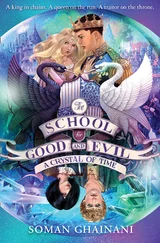“Pick up the pace,” says Karl.
They follow, trying not to stare at Karl’s height. Z. thinks about saying some city-speak, maybe ask him if there’s ever been a population increase of midgets.
Splitting the guards, they walk through the open door and into an office where three women in white blouses with blond hair sit behind a marble counter. The women look up at the group entering with the rush of humid air. Before the door shuts one of the women gets a good look at the sky and her eyes widen. When the door shuts, her expression goes right back to before, a numb forever-lost look. Gray and blue cubicles cram the room, phones ring, and the tops of people’s heads float above padded walls.
Z. takes a deep breath. “We made it,” he says and immediately feels judged, scared, for saying out loud what he meant to think.
“No, you didn’t,” says a woman in white, searching with her hands over the empty desk. “We don’t have a report for new inmates, or a transfer, or an exchange, or any paperwork at all.”
“You’re absolutely right, Toby,” says another woman. “Looks like we have ourselves a problem.”
Z. doesn’t have a wrap for this situation because he was told by Pants that once inside there would definitely be paperwork and the Brothers would be moved into the appropriate cells. He wonders how many midgets live in the city and why they exist. He hears someone slam a phone down followed by the phone crashing against a wall. A man in a charcoal suit with spiked hair runs from one end of the room to the other waving a folder. The women in white smile at Karl whose cheeks are full of air as his blue eyes wobble. Half his head is above the counter. His body is shaking. One of the women leans over, rolls her eyes, and pokes his right cheek. His face farts.
“BAHAHAHAHA,” says Karl, collapsing to the floor. “I get you again, and again, and again,” he says, emphasizing each again with a mock windmill punch on the carpet. When he stands, he marks another | in his book. “Shit,” he exhales. “I’m on fire.”
“Sorry,” says the woman sitting in the middle. “Little Karl is that kind of person. We agree, on occasion, to play along. Besides, it’s all in good fun. Nobody gets hurt.”
“What kind of person is he?” asks Z., smiling, maybe flirting with the woman because her face appears backlit by the sun. He’s heard about this before via a city television commercial — lipstick, eye shadow, mascara, and bronzer. She makes him smile like a dope, yes, fun fun. Or maybe he smiles because smiling, he was told by Pants, makes city people give you what you want.
“An asshole,” says the woman to the right. “That’s what kind of person he is.”
“Go in and I’ll pass this upstairs and these guys here will be set and good to go and they can move on with their lives and —” says the woman in the middle, saying the words so familiar they kind of bleed together, a script she’s said ten thousand times before. She trails off and her face is expressionless, dimming. “What was I saying?”
“Had my fun for the day,” says Little Karl. “Jug will finish the transfer up. Nice meeting you.” Little Karl walks out the door, says, “See ya later, fellas,” to the guards, waves his book at them, and re-enters the glass booth with the computer and corner fan which he holds his hand near to see if it’s working.
“Seriously,” repeats the woman, “What was I talking about? Toby?”
The Brothers move from the administrative office and through a seven-foot-high security turnstile and into the second floor of the prison — a place of blue metal, skylights, concrete floors, everything built in hard steel lines. People are yelling and hitting things made out of metal onto things made of metal and there are shadows where there shouldn’t be shadows. The prison is huge but it feels small and cramped to the Brothers, every hallway and turn is like navigating a closet in extreme heat with no ventilation.
“This way.”
Following Jugba Marzan, inmates size up the Brothers as they walk a kind of open hallway with cells on the right side, a net on the left side. Below the net, and a good fifty feet down, an open concrete center with patrolling guards, more cells. Z. looks back and shrugs. The light in the prison fades with passing clouds. Jug walks in slow motion. His khaki pants are worn high, his backside large and lumbering and dimpled with sweat.
A man with a square head with hair like a bed of needles takes a plank of wood, a section of his bedframe, and thrusts it between the bars, stabbing Ricky in the shoulder who falls into the net attached between the ceiling and the metal railing. When the net tears, two guards catch him and pull him back. Inmates cheer.
The Brothers forget everything they’ve learned. This wasn’t supposed to happen, maybe it’s another game by Karl, but no, this is different, this is pure violence, and Z. rescans all the letters, and the plan, the red underlines all over his bedroom walls and comes up with nothing.
Z., breaking out in a full body sweat, overwhelmed with what he’s gotten himself into, the prison a place of terror, nothing like the pamphlet leads one to believe, taps Jug on the shoulder and says the paper specifies what inmates he’s taking.
“I know,” says Jug.
“McDonovan,” says Z. standing on his toes, aiming his words over Jug’s shoulder. “The Sky Father Gang.”
“I’m a counselor, well, a supervisor, so I understand people. We have these health meetings. I’ve learned things. I know what you’re telling me. Hey, I get it.”
Z. looks behind him and everyone is gone except Bobby T. who is on his knees and surrounded by guards holding batons high. One of the guards is wearing a giant gold cross and telling Bobby T. to pray, instructing him how to properly bend forward, where to place his hands on the floor which the guard guides with little kicks. Bobby T. keeps pulling his hands back toward himself because he’s being kicked. One baton moves.
“Jailbreak in reverse,” says Jug.
“What?” says Z.
“Amazing.”
Z. is covered in sweat and his clothes feel heavy, like they are pulling him to the ground. His legs are sore with the panic settling into his flesh. He wipes his forehead with the torn piece of green robe tied to his wrist and his hair is soaked. He pulls the sleeve of his shirt back over the piece of green fabric. He’s not sure what to say. He’s not sure what to do. What would The Sky Father Gang do. What would his grandfather do. What would anyone who doesn’t want to die do.
“Karl put you up to this? Keeps getting us.” Then village Z. coming out, the man who once jumped from a table in the street to a moving truck’s hood: “I’m leaving.”
“No joke,” Jug says, who opens an empty cell.
Z. considers running. Guards approach from either end of the hallway. More inmates cheering and bells going off and guards telling inmates to be quiet because there’s nothing to see. Sharpened spoons flung from cells. When Z. gets a good look of the prison from where he stands all he sees are dark boxes with bars, stacked side by side and on top of each other. A guard is picking up the spoons as more spoons are thrown.
“Come in,” says Jug. “I need to ask you a favor. You don’t know it now, but this will work out for the best, for both of us.”
Inside the cell Jug appears fatter. His face is doughy and his neck is red from shaving. He has the general appearance of a man once in good shape and in control of his life, in Younger Years, but is now someone uncomfortable with the body he’s in. He moves as if he doesn’t fully understand it. He hates the size of his shirts. When he showers, he stares not at the size of his dick, but his stomach.
Читать дальше











